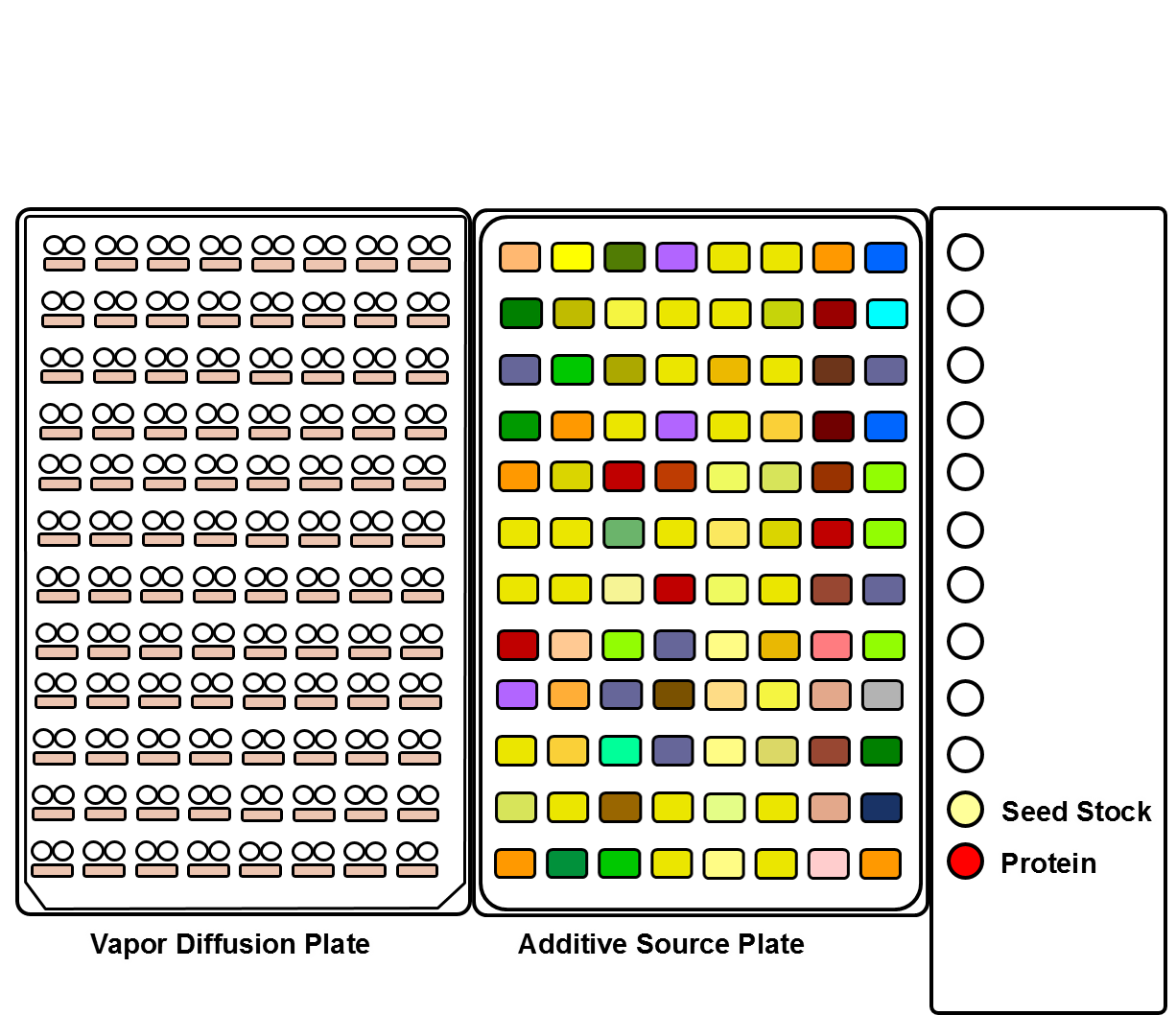November 2024 |
Douglas Instruments has released a new experiment script for Automated Phase Diagram optimization. The new experiment provides a super-quick way to establish the phase diagram for your protein.

|
May 2022 |
Douglas Instruments has published an article in collaboration with the National Physical Laboratory (NPL, Teddington, UK). The article discusses high-throughput approaches for measuring and analysing protein stability, including automated DLS screening approaches using Oryx robots.
Methods such as in-plate DLS enable rapid identification of conditions that promote protein stability and reduce aggregation while supporting improvement of sample quality, stability and reproducibility.
https://doi.org/10.3389/fmolb.2022.890862
|
January 2020 |
The South Coast Biosciences (SoCoBio) Doctoral Training Partnership is offering a PhD student a unique opportunity to undertake research and training in structural biology and microfluidics.
The PhD will optimise nano-crystallisation to study two high value targets. Micro-seeding approaches are developed in collaboration with the highly innovative CASE partner Douglas Instruments [2]. Novel high-throughput approaches in nano-crystallisation using microfluidic platforms are developed at Southampton [3].
Primary supervisor:
Dr Ivo Tews, Biological Sciences, University of Southampton
Co-supervisors:
Dr S. Mark Roe, School of Life Sciences, University of Sussex
Dr Jonathan West, Medicine, University of Southampton
https://southcoastbiosciencesdtp.ac.uk/project/developing-novel-approaches-for-time-resolved-structural-biology/
|
|
|
December 2019 |
Douglas Instruments in collaboration with the National Physical Laboratory (NPL, Teddington, UK) have been awarded a grant by Innovate UK. The project will aim to develop methods to improve the efficiency and throughput of structure determination especially by cryoEM.
|
|
|
March 2019 |
Douglas Instruments has released an updated additive screening experiment script. New features include:
Additive screening with microseeding can now be performed
Reduced total dispensing time

|
|
|
May 2018 |
Douglas Instruments is collaborating with
Xtal Concepts GmbH
to develop methods for improving productivity in cryoEM via the use of multi-well in situ DLS for pre-characterizing samples prior to cryo analysis.
Multi-well in situ dynamic light scattering (mi-DLS) can be performed by the SpectroLight 610 from XtalConcepts. Oryx robots can deliver appropriately small samples under oil.
Suitable experiments include additive screens
(such as the DIXC screen) that includes chaotropes, kosmotropes, detergents, buffers, substrates etc. These can be followed up with multivariate optimization experiments. |
|
|
Nov 2017 |
Douglas Instruments has introduced new 2D grid optimization experiments with large volume reservoir filling capability. Please click here to see a youtube video of a 24 Well Hanging Drop - Simple pH vs [precipitant] Gradient Optimization experiment. |
|
|
May 2016 |
Douglas Instruments has developed a method of further scaling up Lipidic Cubic Phase (LCP) experiments. The method can be used to prepare larger volumes of micro crystals for use as an LCP seed stock or for serial data collection |
|
|
March 2016 |
Douglas Instruments has published a study adapting the rMMS Microseeding method for use with Lipidic Cubic Phase (LCP): A novel microseeding method for the crystallization of membrane proteins in lipidic cubic phase.
The method involves scaling up crystallization conditions and dispensing LCP containing micro crystals to a fresh screen. Our trials showed an increase in crystallization hits of almost an order of magnitude. |
|
|
| |
Please visit the News Archive to see previous news postings.
|
